Quarrying
Type of resources
Topics
Keywords
Contact for the resource
Provided by
Years
Formats
Representation types
Update frequencies
Scale
-
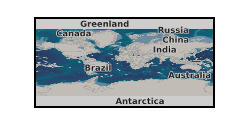
Old card index of quarries in England, Wales and Scotland dating mostly from 1939 to 1963: about 7000 cards, each referring to one quarry. England & Wales cards are arranged by BGS 1-inch (now 50k scale) geological sheet, Scottish cards by county. At best, cards indicate county, geol-sheet, rock type, name, grid reference, locality, owner, date of record and cross references to BGS samples.
-
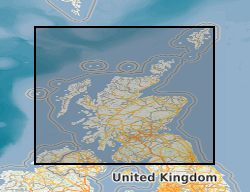
The Land Survey Plans collection of c.1,520 plans consists largely of mine plans acquired by the Survey, including 492 non-coal mine plans deposited by the National Coal Board 1984-87, and copies of mine plans derived from various sources including '6-inch reductions'. The collection also contains about 500 miscellaneous plans extracted from other Land Survey records in order to benefit from specialised systems of archival storage. The Survey's collection of Northern England mine plans are being added to the LSP collection. The collection supplements the Plans Of Abandoned Mines (Other than Coal & Oil Shale) in Scotland (NONCOALPLANSCO) providing an index to plans other than coal and oil shale for Scotland. Indexed on BGS Plans Database Index. Coal Authority hold some non-coal plans for Scotland. All non-confidential data held by NGRC(N) is available to users. Mainly coalfield areas of Central Scotland.
-

Data relating to project specific sites of investigation into fluid processes in landfills and mine sites.
-

**has been incorporated into the main BGS Landslides database**The dataset results from a survey of the landslips in the South Wales Coalfield, conducted on contract for the Department of the Environment in 1977-81. A total of 579 landslips were identified from air photo interpretation and existing mapping. Each landslip was examined in the field and a catalogue compiled including data on location, description, classification, geological context, dimensions and activity. The data is also presented on c. 90 annotated field sheets at 1:10 000 scale and in other supporting documentation.
-
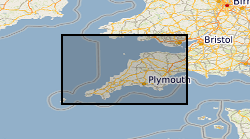
Detailed mining information for mining in Devon and Cornwall gathered by George Dines (former BGS Geologist) for a period around 1921. Maps, plans and accompanying notes and documents provide detailed information on the metal mining ( mainly tin,copper,lead) at that time. A synthesis of this information was published in "The metalliferous mining region of south-west England" 3rd impression 1988.
-
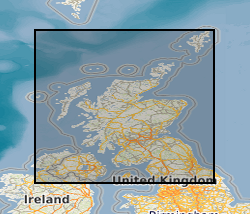
The collection consists of borehole drill logs, site plans, borehole location plans, geological plans and completion plans for opencast coal sites in Scotland and Northern England. It includes records deposited by the Directorate of Opencast Coal Production (DOCP) and its successors, National Coal Board (NCB), British Coal and numerous private and licensed opencast mine. The NCB Scottish Area records are arranged by the NCB opencast site number. Many records of cored 'diamond' boreholes are held in the BGS Scottish Borehole Journal records. Northern England opencast records are mainly held with the ex-Newcastle Borehole Records. Copies of completion plans for Scotland are also held in the Coal Mine Abandonment Plan collection available on microfilm aperture cards. Opencast sites are indexed in the Land Survey Record Index (LSRI) database. The cored 'diamond' boreholes are indexed on Single Onshore Borehole Index (SOBI).
-
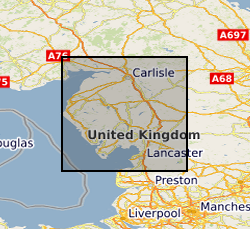
The collection comprises photographic half plate black & white negative and 35mm colour transparency copies of plans of mine workings for haematite, gypsum, limestone, baryte and metalliferous minerals for Cumbria dating from 1872 onwards. The plans were originally deposited in compliance with the Coal and Metalliferous Mines Regulation acts. The original plans are currently held by Cumbria County Record Office on behalf of the Health & Safety Executive (HSE) and total about 1240 plans. No digital index is available but a paper catalogue is provided by the Health & Safety Executive. As the collection relates to plans of mines abandoned after the 1872 Act, the holdings are fairly complete after this date. Note however, that the Metalliferous Mines Act originally applied only to mines employing more than 12 men, (eg. some limestone mines). Coal Authority may hold non-coal mine plans not covered by Mine Abandonment Plan collection.
-
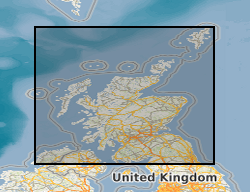
The collection comprises plans of mine workings for ironstone, fireclay, limestone, baryte and metalliferous minerals for Scotland dating from 1872 onwards deposited on abandonment of a mine in compliance with the coal and metalliferous mines regulation acts. The plans are held on behalf of the Health & Safety Executive (HSE) and total about 610 plans. Indexed in the BGS Plans Database Index. As the collection relates to plans of mines abandoned after the 1872 Act, the holdings are fairly complete after this date. The Metalliferous Mines Act originally applied only to mines employing more than 12 men, (eg. some limestone mines). Where non-coal minerals were worked with coal, the abandonment plans are retained by the Coal Authority. Coal Authority also holds exclusively non-coal mine plans not covered by Mine Abandonment Plan collection. All non-confidential data held by NGRC Edinburgh (National Geological Records Centre). Mainly coalfield areas of Central Scotland with large collection relating to the Leadhills-Wanlockhead mining district.
-

Reports detailing investigations into mine water discharges and potential effects on aquifers in the East Midlands Coalfield and in the Lake District.
-
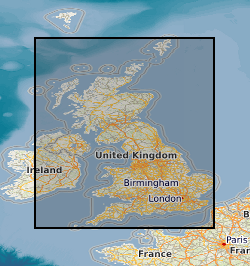
Index to the BGS collection of large scale or large format plans of all types including those relating to mining activity, including abandonment plans and site investigations. The Plans Database Index was set up c.1983 as a digital index to the collections of Land Survey Plans and Plans of Abandoned Mines. There are entries for all registered plans but not all the index fields are complete, as this depends on the nature of the original plan. The index covers the whole of Great Britain.
 NERC Data Catalogue Service
NERC Data Catalogue Service